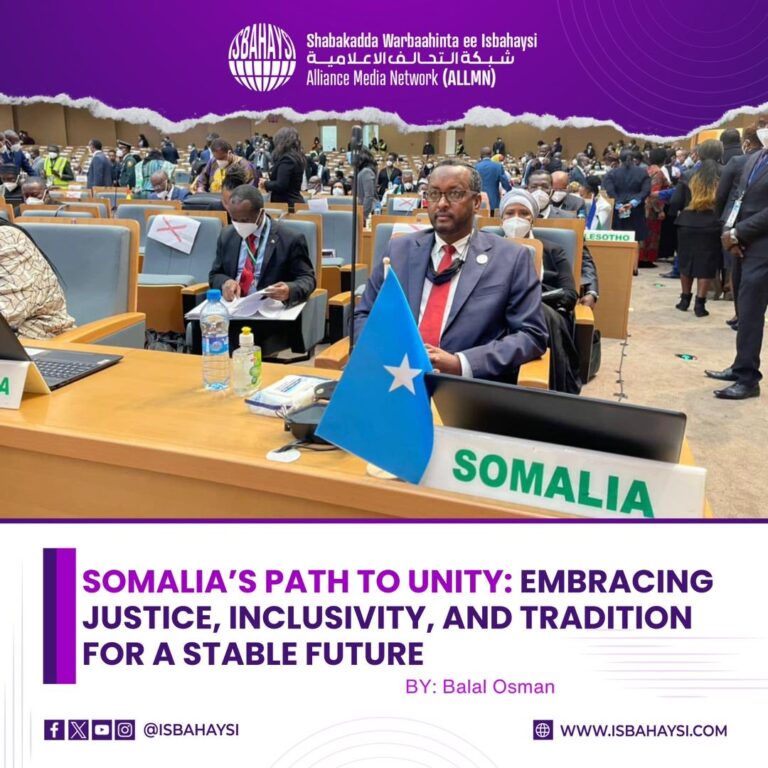
Somalia faces one of the most complex nation-building challenges of the modern era. Emerging from decades of conflict, political turmoil, and social fragmentation, the country is at a critical crossroads in its pursuit of lasting peace and development. Central to this journey is the urgent need for unity—a shared vision that promotes justice, social cohesion, and inclusivity, at this critical time country’s history. Without a unity of purpose, Somalia risks falling into further division and obstructing its already slowly moving progress.
The country’s recent history is marked by internal divisions along clan, sub-clan and regional lines, which though offering a sense of identity and support, have often contributed to political instability and conflict. Despite efforts toward inclusivity, the absence of a widely accepted social contractand governance system has hindered the progress of nation-building. A lack of a cohesive national vision continues to limit political and developmental achievements.
For Somalia to overcome these barriers, it must rally around a shared purpose that transcends regional and clan boundaries. A united Somalia, grounded in justice and mutual respect, would not only foster internal cohesion but also position the country as a stronger participant in regional and global affairs.
At the heart of this unity lies justice, which must be accessible to all. Somalia’s journey to peace and prosperity depends on addressing historical grievances, ensuring fair resource distribution, and building transparent institutions. Justice, anchored in the moral and ethical teachings of authentic Islam, resonates deeply with Somali culture. Authentic Islamic principles of fairness, compassion, and dignity should form the bedrock of a just society, ensuring widespread support for a justice system that serves the people. This should forge a covenant that transcends clan divisions and unites the country around a shared vision of justice, equity, and mutual respect.
However, it is always important to keep in mind that Somalia’s path forward will not be without opposition. Those who benefit from the status quo of division and instability will resist efforts to foster unity and reform. To counter this, reforming the social contract and restructuring of the governance system must be transparent and inclusive, amplifying the voices of those committed to peace and justice.
Ultimately, Somalia’s future hinges on a critical choice: continue with politics rooted in clanism and self-interest, or embrace a politics of principles that prioritize justice, inclusivity, and collective progress. Clan-based politics, while deeply ingrained, has fuelled division and weakened institutions. By shifting toward a principled politics that serves the common good, Somalia can lay the foundation for lasting peace, stronger institutions, and sustainable development.
In conclusion, Somalia stands at a pivotal moment. To build a peaceful and prosperous future, the country must unite around a shared vision rooted in justice, inclusivity, and its authentic Islamic and traditional values. A newly reformed social contract and restructured governance system, forged through inclusive dialogue, is essential to break the cycle of fragmentation. Somalia’s progress depends on choosing the path of unity and principle over division and self-interest, ensuring a future that serves all its citizens.
Author: Mr. Balal Mohamed Cusman, Former State Minister for Foreign Affairs and International Development of Somalia.
X: @BalalCusman